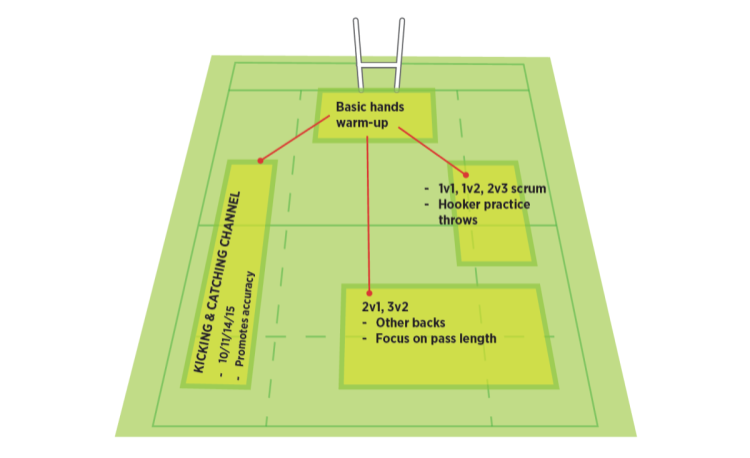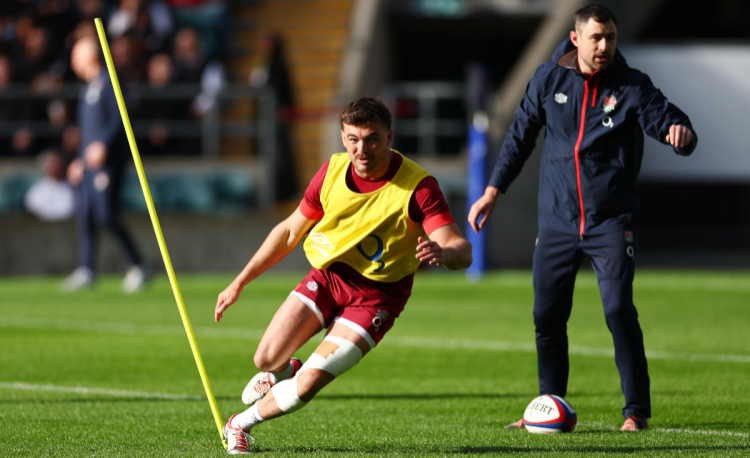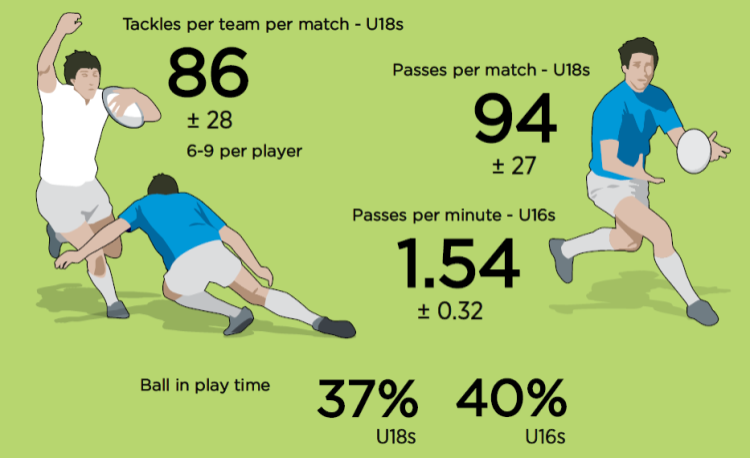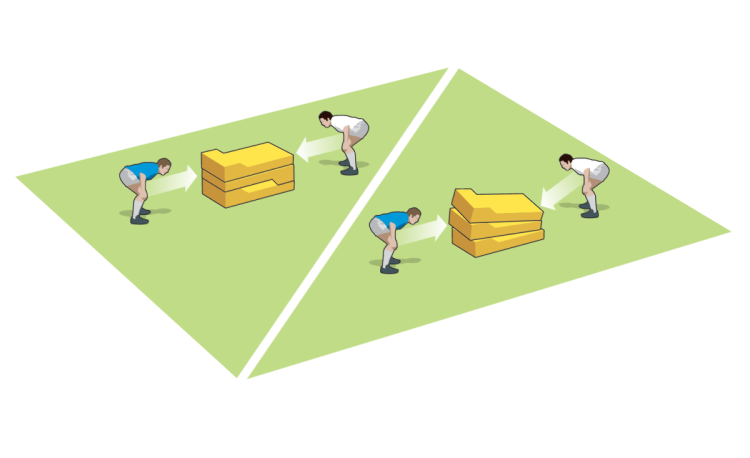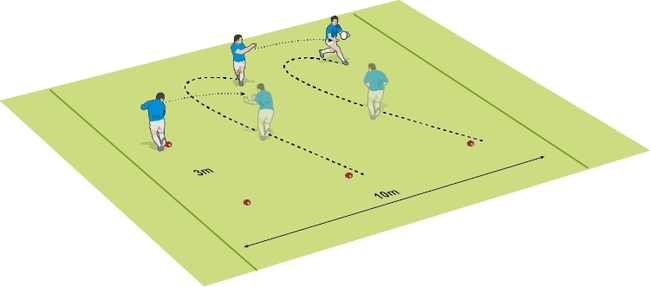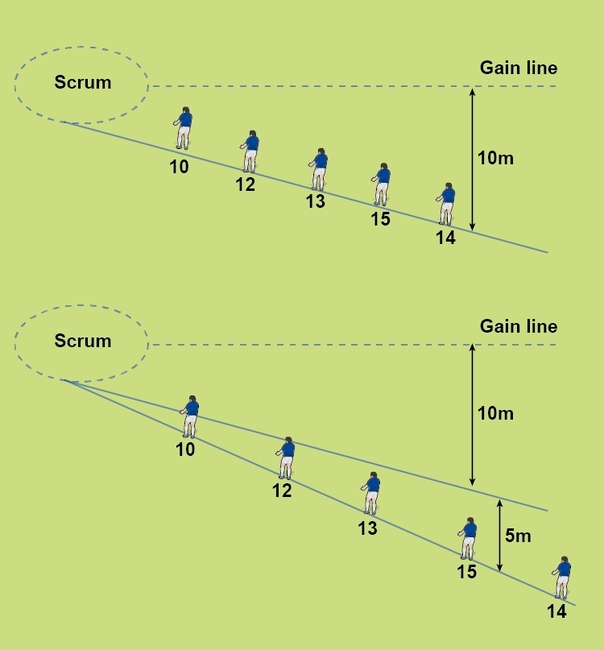Create tailored rugby fitness plans
Fitness & Conditioningby Dan Cottrell
You already know that all your rugby players are individuals with their own strengths and weaknesses. And yet so many rugby coaches give all their players the same fitness and conditioning programmes, both during rugby coaching sessions and for their spare time.
Even breaking down a fitness programme into positions does not allow for the fact that players are at different stages of fitness, strength and ability.

Here are some rugby coaching tips to help you rectify this problem.
Time players over different distances, record repetitions of exercises and maximum weights. Publish their personal bests (PBs) and monitor them to see if these are broken. Of course, players will benchmark themselves against others, but at least they will looking to improve as individuals.
Monitor PBs every month. Players can be used to record each other’s achievements. It also helps team building to work together.
During team fitness, instead of everyone trying to achieve the same levels, give players a grading. For press-ups, for instance, give the fittest grade A, the next level grade B and so on. Then for each exercise, let's say grade A players do ten press-ups, grade B nine press-ups, etc.
As you identify that players are getting fitter, then up their grade. As the whole team gets fitter, then increase the repetitions for everyone.
A personal fitness coach sets out each player's individual programme, but also encourages and reminds them of their weekly goals. Your role therefore is to keep reminding players of the different types of fitness they could be doing each week.
For instance, you could say: "This week I want to concentrate on hill running outside session time: grade A players try ten 30 second runs with a 30 second rest, and grade B nine 30 seconds runs with a 30 second rest."
Even breaking down a fitness programme into positions does not allow for the fact that players are at different stages of fitness, strength and ability.

Here are some rugby coaching tips to help you rectify this problem.
Set and record personal bests
Time players over different distances, record repetitions of exercises and maximum weights. Publish their personal bests (PBs) and monitor them to see if these are broken. Of course, players will benchmark themselves against others, but at least they will looking to improve as individuals.
Monitor PBs every month. Players can be used to record each other’s achievements. It also helps team building to work together.
Training tip 1: Forget hurdles – get the feet to the ground quicker
Rugby is about balance. The more the feet are on the ground, the better balanced a player is. Sprinters spend a lot of time trying to get their feet back onto the ground to increase their speed.
Hurdles – like those used by many rugby players – hinder this process and actually encourage players to lift their legs, more especially their knees. As a consequence their feet are off the ground for longer and so speed is lost.
Alternatively, try using ladders or cones to create situations where players move forward, but have to get their feet back on the ground as quickly as possible.
Don't ignore hurdles, though. They are useful in the off season as a way of increasing other forms of fitness, such as plyometric power.
Team fitness, personal goals
During team fitness, instead of everyone trying to achieve the same levels, give players a grading. For press-ups, for instance, give the fittest grade A, the next level grade B and so on. Then for each exercise, let's say grade A players do ten press-ups, grade B nine press-ups, etc.
As you identify that players are getting fitter, then up their grade. As the whole team gets fitter, then increase the repetitions for everyone.
Training tip 2: Change your rest day
In a seven day cycle of training with a match day at the end, most players will take the day off before the match. There will be at least light training on all the other days with burst of intensive training on two or three days.
A lot depends on your training days, but tests show that having a complete day off from training mid week is better for sports people. And a "complete day off" means more than 22 hours between training sessions.
Help the balance, weekly reminders
A personal fitness coach sets out each player's individual programme, but also encourages and reminds them of their weekly goals. Your role therefore is to keep reminding players of the different types of fitness they could be doing each week.
For instance, you could say: "This week I want to concentrate on hill running outside session time: grade A players try ten 30 second runs with a 30 second rest, and grade B nine 30 seconds runs with a 30 second rest."
Training tip 3: balance endurance and speed fitness training
Ensure you make the distinction between endurance and speed fitness training, and vary the use of both. A simply way to distinguish between these types of training is to follow this simple set of timings:
- Endurance: 30-40 seconds of running with three to four times that in rest time between each set.
- Speed: 5-20 seconds of running with six to eight times that in rest time between each set.
Newsletter Sign Up
Coaches Testimonials

Gerald Kearney, Downtown Las Vegas Soccer Club

Paul Butler, Florida, USA

Rick Shields, Springboro, USA

Tony Green, Pierrefonds Titans, Quebec, Canada
Subscribe Today
Be a more effective, more successful rugby coach
In a recent survey 89% of subscribers said Rugby Coach Weekly makes them more confident, 91% said Rugby Coach Weekly makes them a more effective coach and 93% said Rugby Coach Weekly makes them more inspired.
Get Weekly Inspiration
All the latest techniques and approaches
Rugby Coach Weekly offers proven and easy to use rugby drills, coaching sessions, practice plans, small-sided games, warm-ups, training tips and advice.
We've been at the cutting edge of rugby coaching since we launched in 2005, creating resources for the grassroots youth coach, following best practice from around the world and insights from the professional game.




